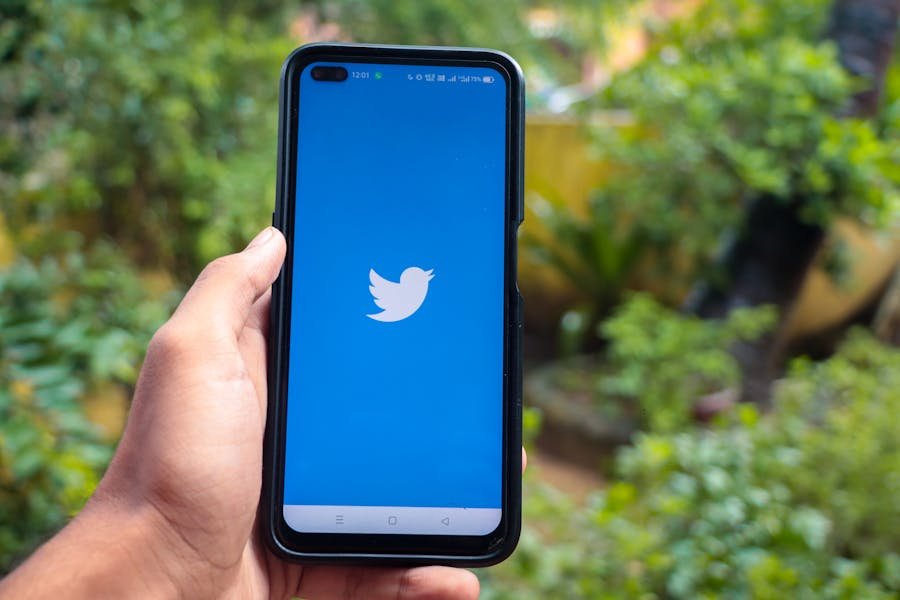
We tweet, react to news and events, make pop jokes, tweet ideas, and connect with people. But in the process of tweeting everything that crosses our mind, we also get used to posting things too hastily which we later regret: typos, lame jokes, over-emotional reactions, statements that get us into trouble, and much more. This is what motivates many of us to hurriedly delete such tweets in the vain hope that we can erase our online blunders.
The Role of Shame and Embarrassment
A key reason we delete tweets is to avoid embarrassment or shame about what we posted. According to psychology, embarrassment serves an important social function – it reinforces cultural norms about what is and isn’t appropriate to say or do. When we violate those norms with an improper tweet, embarrassment kicks in, signaling that we did something socially unacceptable. This makes us want to remove the offending tweet from public view. In this context, tools like Twitter Archive Eraser have become invaluable for quickly and effectively erasing problematic tweets, allowing users to maintain a socially acceptable digital presence.
Shame is also the feeling that we are fundamentally flawed or defective when we violate norms. Shameful tweets expose us to undesirable personality traits or unwise opinions. It allows us to hide our flaws, as well as the less socially acceptable sides of ourselves.
In that, we want to eliminate embarrassing or shameful tweets to manage our image and social standing. Deleted tweets are a type of impression management specific to the digital age.
Loss Aversion and the Endowment Effect
Loss aversion and the endowment effect also come into play in terms of two related economic principles and how they relate to tweet deletion. Loss aversion is the idea that we perceive losses as being more extreme than the same amount of gain. The endowment effect is an effect where we value things more when we have ownership over them.
When we tweet something, we feel a sense of ownership over that tweet. It becomes part of our online persona and identity. So deleting it feels like a loss – one we wish to avoid. This gives even mundane tweets an elevated value, making us reluctant to remove them. It takes a high level of embarrassment or shame for the potential loss of reputation from an offensive tweet to outweigh our innate loss aversion and endowment effect regarding our tweets.
Preserving Self-Concept and Cognitive Dissonance
Two other key psychology theories relate to saving face online: self-concept maintenance and cognitive dissonance. Self-concept refers to the image we have of our personality, values, capabilities, and character. Preserving our self-concept means protecting our sense of identity. However, when we tweet something that contrasts with our typical views or behaviors, that contradicts our self-concept. The conflict causes psychological discomfort known as cognitive dissonance. So we delete the troublesome tweet to resolve the dissonance and maintain consistency in our self-concept.
This also ties into impression management – showing a consistent personality aligned with our self-image. Managing cognitive dissonance helps us keep up the appearance (both to ourselves and others) that we are who we believe ourselves to be.
The Role of the Audience and Future Self
Why we delete something also relates to who we imagine reading our tweets. According to psychology, we portray ourselves differently depending on our audience. Most people present an edited version of themselves through what’s called self-monitoring. When tweeting publicly to a broad audience, we tend to be more measured in our self-presentation. However, in the moment we tweet reactively without filtering ourselves for the audience. Once we realize a tweet doesn’t match our intended public persona, deleting it lets us edit our image.
Our imagined future self also impacts deleting. We realize that even if a tweet feels fine now, our future self may regret leaving it up as we mature and our perspectives change. So deleting feels like doing our future self a favor by not saddling them with permanent online baggage. However, this assumes our future values and priorities will differ significantly from our current ones.
The Role of Mood and Arousal
Psychology shows our emotions and arousal levels greatly influence our behavior, including tweeting activity. When we are in heightened emotional states due to stress, anger, excitement, or other moods, we are more likely to tweet reactive thoughts without self-filtering. Coming down from these emotional peaks leaves us more rational, risk-averse, and concerned about self-presentation. This mentality shift leads us to remove tweets we made while caught up in aroused emotional states.
Calmer moods equal greater impulse control and caution. Hot emotional states reduce inhibition. So deleting tweets allows us to cover up behaviors performed in aroused “hot states” that seem ill-advised or inappropriate once we cool down.
FOMO and Peer Pressure
For teens and young adults especially, psychology points to peer pressure and fear of missing out (FOMO) driving social media use. We tweet to participate in real-time conversations, trending topics, and viral phenomena. Getting likes, retweets, and replies supplies social validation. So in the heat of the moment, scoring those social rewards causes us to tweet hastily without considering how it represents us to the wider public.
But socially rewarded peer group interactions center on what’s outrageous, controversial, and boundary-pushing. The drive for social validation encourages tweeting excessively emotional, reactive, lewd, or improper content. When this backfires through criticism or life complications, deleting lets us backtrack and bow out of public view. However, FOMO soon has us tweeting again for peer approval despite past regrets.
The Brain’s Role: Reward Circuits and Inhibition Control
Neuroscience offers additional insight into what motivates and deters tweeting. fMRI scans show that getting likes on social media activates the brain’s reward circuits just like eating food, having sex, or taking drugs. The dopamine rush of tweet feedback keeps us returning for more despite risks or embarrassment.
Conversely, the prefrontal cortex region handles executive functioning like risk assessment, decision making and impulse control. However, this area doesn’t fully develop until around age 25. So teens and young adults in particular tweet more rashly. They also lack adequate neural wiring to consider the long-term reputation effects of tweets. The still-developing brains of youth prioritize short-term social rewards over long-term risks when tweeting.
Overall, the brain generally functions more reactively than reflectively. Deleting tweets caters to our brain’s preference to act first in the heat of the moment, then calm down later and clean up the mess.
The Role of Unconscious Desires and Fears
Psychodynamic psychology introduces another perspective on deletions – the role of the unconscious mind. Beneath our conscious thoughts lie powerful unconscious drives, emotions, and defenses that influence behavior. Tweeting allows us to vent unconscious desires or aggressions that polite society normally keeps suppressed.
Yet when those forbidden impulses manifest through tweets, our core inner fears get triggered – fears of being rejected, unloved, inadequate, worthless. To cope with the anxiety this stirs up, our unconscious defenses kick in to conceal the undesirable impulses and protect our psyche. Deleting tweets serves as one way our unconscious controls and edits our visible persona to keep repressed desires and fears from being exposed.
This relates to psychodynamic concepts like the id (unconscious impulses and desires), the superego (inner critic and conscience), and ego defense mechanisms (denial, repression). In this view, deleting tweets allows conflicted parts of ourselves to take turns publicly expressing, then editing, controlling, and concealing who we are.
Conclusion
And looking into our complex relationship with posting and deleting content on social media platforms ultimately makes for a very modern sort of psyche. Tweets and deletions tell us about our unconscious conflicts, self-concept issues, cognitive biases, presentation of self-strategies, and social motivations. Focusing on the psychological forces behind our tweet and deletion behaviors gives us some self-awareness to tweet more intentionally going forward, rather than always having to hit undo.
